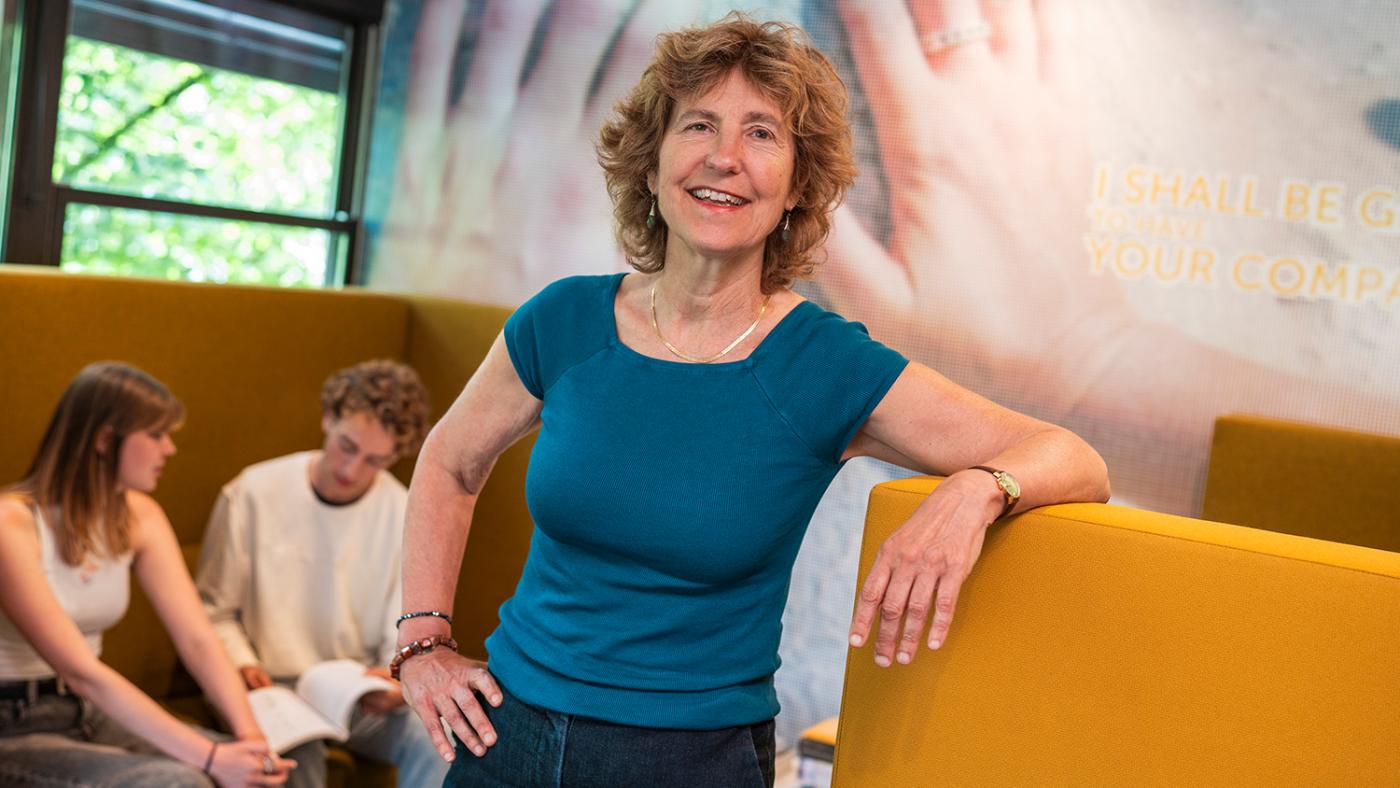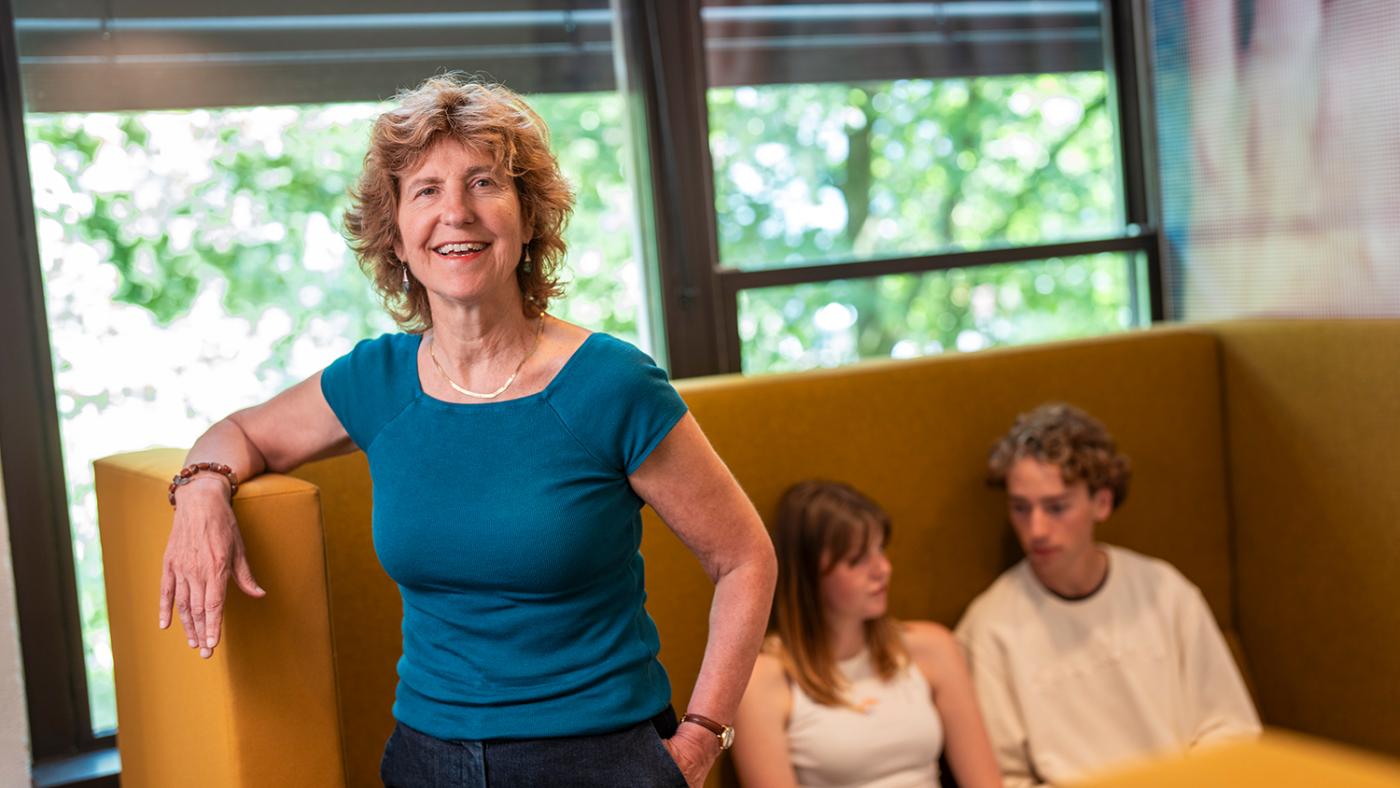Regular breaks and rest increase job satisfaction
“A collective rhythm gives us more peace of mind”

In the Netherlands, the older a worker gets, the longer they have to work. This is no big deal for those who enjoy their occupation, but Dutch people have become less and less satisfied with work in recent years, according to The Value of Work Monitor 2019-2023, published by the University of Amsterdam. Most workers gave their jobs an average rating of 7.6 in 2019, but the score fell to 7.5 in 2021 and 7.4 in 2023. Although researchers can't pinpoint a clear explanation for this decline, the respondents indicated that they were under greater psychosocial stress as a consequence of having to deal with inappropriate behaviours in the workplace and excessive work pressure.
Time pressure is one of the things that can increase stress among workers. ‘If you ask Dutch people how they are, almost all of them will say they are busy. It is part of our culture,’ says Tanja van der Lippe. A professor of Sociology affiliated with the Future of Work network at Utrecht University, Van der Lippe's research focuses on how to achieve a healthy work-life balance and sustainable employability. She was awarded a Stevin Prize (also known as the Dutch Nobel Prize) for her work in 2022.
Van der Lippe observes that many Dutch people are under some form of time pressure. However, things are not that bad, objectively speaking: the Dutch do not spend more time on obligations such as work, care and education than people in other countries, for example. According to the professor, the Dutch feel under time pressure due to three factors: they want to, have to, and can do a lot. ‘We feel as though we have to do a lot at the same time, not only at work but also in our spare time, because that gives us status. And we can do a lot. We expected technology to make our lives easier, but the opposite has happened. Smartphones have many advantages, but they also keep us constantly “on”.
No time limit
In addition, the working day is getting more flexible, and many people are allowed to work from home, which enables them to “just keep going” into the evening. Such flexibility can also mean an absence of limits to working hours. The Dutch have also become less likely to join clubs to exercise, preferring to do so individually by going for a run or hitting a gym with long opening hours. So, there is no time limit there either. ‘Nowadays, everyone has such different schedules that it's a complex task to coordinate times.’ People had more peace of mind when there was a collective rhythm in the Netherlands, with fixed working days and hours, shops that closed on Sundays, and sports clubs where people trained on Wednesdays and played a match on Saturdays.
Theoretically, parents of small children (especially mothers) form the group under the most time pressure, alongside informal carers and young people. The latter may sound surprising to some. After all, students are less busy compared to the other two. "Most young people feel under pressure. They are constantly being compared to their peers on social media, while school and/or work puts them under pressure to perform. Additionally, they are living in uncertain times. It is not easy for them to buy a house or get a permanent job contract. The climate crisis and the threat of war also affect them more than other groups. Last but not least, they have many choices to make, from where they will work and live to where their relationships will go, whether or not they want children, etc. These issues are much more crystallised for people over 50."

People under time pressure don't manage to continue their education. The study Learning and Development in the Netherlands, published in November 2024 by the ROA research institute at Maastricht University, shows that almost 30 percent of workers wanted to take a course but did not do so due to work pressure, work-life balance or financial reasons. The same study indicates that those who continue studying tend to be more satisfied with their jobs. Van der Lippe: ‘Education is a very valuable thing. It can serve different purposes in life. The knowledge can be useful for your job, but it can also just help you develop as a person.’
Time pressure is a social problem
Tackling time pressure is not an individual issue, Van der Lippe underscores. She regards time pressure as a social problem in which employers play a significant role. After all, young workers benefit from the security of a permanent job, while informal carers benefit from being able to discuss the need to take care of a loved one at work and a little more understanding when they are absent.
As for parents, employers can help them by contributing to quality childcare, for example. "They could also pay more attention to the partner. Currently, the government only pays 70 percent of the salary for additional birth leave, which can be a barrier. Low-income families may depend on 100 percent of that wage. It should not just be about the mother, the young person or the informal carer; the whole system around them needs to be improved."
Know your colleague
In today's work situations, where employees are given the option to work from home, Van der Lippe believes colleagues should make clear agreements with each other to prevent stress.
She divides employees into two groups, the “integrators” and the “segmenters”. Integrators are people who enjoy the flexibility of working from home and let their work and private lives overlap, while segmenters are those who prefer to keep their work and private lives separate. ‘It's very helpful when the whole team knows which members are integrators and which are segmenters, so that they can take each other into account. Integrators would refrain from sending emails to segmenters late in the evening, for example.’
In her 2021 book Waar blijft mijn tijd? ("Where did my time go?", Ed.), Van der Lippe outlines the dilemma society faces today: do we want “more, more, more” or “enough is enough”? One of the solutions she proposes is the so-called pursuit race. "In this race, we continue to develop. We look at each person's strengths and divide the tasks accordingly, so we turn the work into a team effort, which reduces time pressure, improves work-life balance, and makes people happier. You don't have to join the rat race on your own."
Finally, Van der Lippe emphasises that time pressure is not necessarily a bad thing. ‘If you have a deadline and you manage to meet it after working hard, that can give you a sense of satisfaction. But being too busy comes with negative consequences. ’People who are too busy tend to have less healthy diets and poorer mental health.'

This is an article from DUB's Lang zullen we leren! (Long may ww learn!) magazine, which was made in collaboration with Utrecht University's Continuing Education programme. The magazine can be found in several buildings of the university but all the articles from the magazine are also available online. Over the next two months, DUB's website will feature several of those articles and stories, as well as publish a few additional online-only articles about continuing education. You can find all the articles related to the magazine here.
Comments
We appreciate relevant and respectful responses. Responding to DUB can be done by logging into the site. You can do so by creating a DUB account or by using your Solis ID. Comments that do not comply with our game rules will be deleted. Please read our response policy before responding.